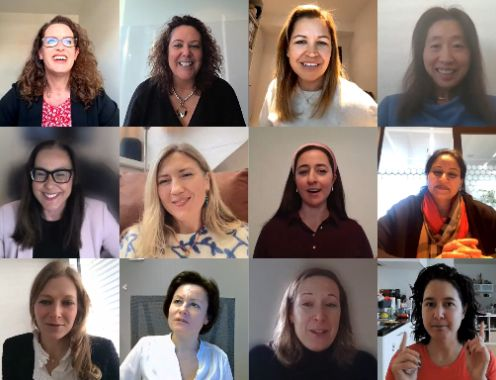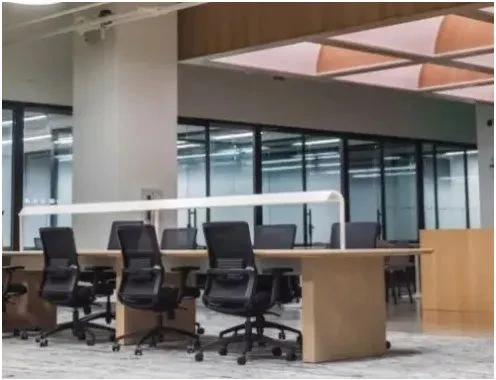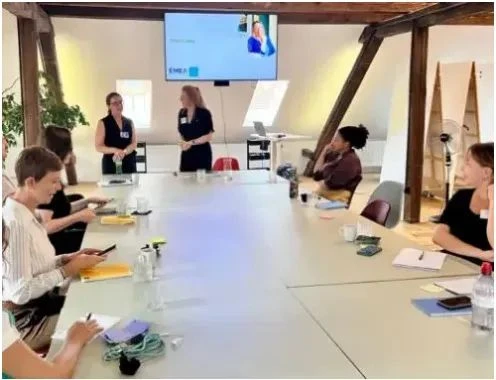Tips to Maintain Your Mental Wellbeing During the COVID-19 Lockdown

Without a doubt, due to COVID-19, we are currently experiencing an unprecedented situation, unlike anything most of us have experienced in our lifetimes before. At EMEA Recruitment we hope that all of our clients, partners, contacts, readers and their families are all safe and well during these difficult times.
Across the EMEA region, the pandemic has resulted in governments limiting social contact and encouraging people to stay and work at home for their own safety and the safety of others. For many people, working from home during this period of social distancing may bring many benefits in terms of work/life balance, flexibility and not having to commute, which we will cover in more detail in an article later this week.
However, everybody recognises that the advice given to us by officials has turned our daily lives upside down. For some people, this is an anxious and worrying time, with mental health charity SANE reporting a sharp increase in calls since the pandemic began, with over 80% of them citing worries about coronavirus.
Therefore, we feel it is important that society encourages best-practice to help people stay as happy and mentally healthy as possible. Below, we’ve put together a number of tips to maintaining your mental well-being while working and living in isolation.
Stay connected with others
Advances in modern technology during the last 15 years mean that even though you cannot see colleagues, friends and relatives in person, you don’t have to feel lonely while practicing social-distancing.
- Organise video chats with people you’d usually see in person. Video chats are about as close as you can possibly be to spending time with somebody in person. At EMEA, we have used our virtual meeting room platform EMEA Live to organise activities such as a virtual team beer meeting last Friday and virtual pyjama parties. One of our consultants even organised a virtual dinner with their friends in Italy!
- If video calls aren’t possible, organise phone calls and keep in contact through instant messaging
- If they don’t already, encourage your workplace to take advantage of the digital tools available to aid home-working - Use Zoom, Odro, Microsoft Teams, Slack, Skype or any other means to stay in contact with your colleagues to make sure home-working is effective and less stressful
- Use the time at home to spend quality time with loved ones
- For some, spending so much time at home may cause tension and anxiety. If this is the case, try to use the time to strengthen relationships with your family or housemates
Keep active
Going to the gym is a key pastime for many people in order to maintain mental well-being, and although gyms may be closed across the world currently, it is still vital to keep active as much as possible. Make sure to check government guidelines, and if they permit you to do so, go for a walk or jog outside each day, or use exercise equipment in the home if you have it.
However, not everyone is able to go outside currently, and not everyone has exercise equipment in their home; in which case it’s important to try and incorporate simple physical activities into your daily routine. This can be done in a number of ways:
- Clean your home - Just simple housework can get you moving around the house and only requires equipment everybody has in their home
- Climb up and down the stairs
- Do some gardening
- Watch and take part in online exercise video courses
- Set a reminder to get up out of your seat every hour - Try not to get bogged down in your office chair, and make sure to get up and get active when you’ve been sitting still for too long
Maintain a healthy, regular routine
It can sometimes be difficult to maintain your usual routine when working from home, and it could be especially difficult while self-isolating. You could be going to bed later, getting up earlier or struggling to sleep all-together.
- Try to follow your ordinary routine as much as possible. Get out of bed at the same time as normal, follow your usual morning routines, wear your usual office clothes and go to bed at the usual time
- If you don’t like your daily routine, now is an opportunity to change it; Go to bed earlier, spend more time cooking healthy food, develop a better work/life balance etc.
- If you are finding it difficult to sleep or struggling with your daily routine due to anxiety, make sure to talk to someone rather than suffering alone
- Write down your new routine, set alarms on your phone to remind you to do things at certain times, or pin it to your wall to make sure you’re constantly reminded of it
Stay Mentally Stimulated & Get Some Fresh Air
While you may be stuck inside and have limited ability to go outdoors, its still important for your mental wellbeing to expose yourself to some fresh air, sunlight and nature. Furthermore, spending time indoors doesn’t have to be seen in a negative light, it presents a unique opportunity for us to do something different.
- Use the isolation period as an opportunity to pick up a new hobby. Learn to play a new musical instrument, start cooking or baking, take up painting or crocheting or any activity you would enjoy. This is the perfect time to do something you’ve always wanted to do but hadn’t previously had the time to do
- Read books and magazines, listen to podcasts and watch films - Keep your mind stimulated even when you’ve finished your work
- Have a clear-out of old things to donate to a cause of your choice
- If you can’t leave the house or sit in your garden, make sure you open a window or door to let in some fresh air, and set-up your desk in front of a window with a view of the sky so you can receive some sunlight
- Having exposure to green environments and nature in your daily routine can improve your mood, relieve stress and anxiety, and increase relaxation - Therefore try and incorporate it into your routine by listening to nature sounds while working, putting up photos of your favourite natural places or growing indoor plants! Youtube has a wide variety of natural soundscapes to listen to, and even office background noise if you’re missing your colleagues!
Limit Your Exposure to News and Be Mindful
Of course, with the situation changing so quickly at the moment, everybody is trying to keep up to date with the latest news, advice and figures, but it’s all too easy to become anxious and worried by reading negative news, and to add to this, social media is unfortunately very effective at spreading fake-news, some of which can not only encourage bad practice, but also cause even greater distress to those reading. Therefore:
- Make sure to check where the information you’re reading is sourced from, and try to stick to trusted, certified websites
- Try to limit the amount of time you spend watching or reading news which makes you feel anxious
- Set a specific time each day as part of your routine to get updates
- Social media is obviously a great tool for keeping updated with people and news, but consider using tools such as Screen Time to limit the amount of time you spend scrolling through your feed
Use the APPLE Technique
If you are feeling anxious or worried during the Coronavirus pandemic, mental wellbeing charities recommend using the APPLE technique, this is as follows:
- Acknowledge: Notice and acknowledge the uncertainty as it comes to mind.
- Pause: Don't react as you normally do. Don't react at all. Pause and breathe.
- Pull back: Tell yourself this is just the worry talking, and this apparent need for certainty is not helpful and not necessary. It is only a thought or feeling. Don't believe everything you think. Thoughts are not statements or facts.
- Let go: Let go of the thought or feeling. It will pass. You don't have to respond to them. You might imagine them floating away in a bubble or cloud.
- Explore: Explore the present moment, because right now, in this moment, all is well. Notice your breathing and the sensations of your breathing. Notice the ground beneath you. Look around and notice what you see, what you hear, what you can touch, what you can smell. Right now. Then shift your focus of attention to something else - on what you need to do, on what you were doing before you noticed the worry, or do something else - mindfully with your full attention.
These are concerning times for everybody, but it’s important to remember that we will get through them together. By looking out for one another, following government advice, ensuring hygiene and maintaining your mental wellbeing, we can get through to the other side of this crisis.
At EMEA Recruitment, it’s still business as usual as our consultants are working from home. We’ll be keeping you up to date with more updates during the next few weeks, so keep an eye on our news & events section for more information.












You can also use your social account to sign in. First you need to:
Accept Terms & Conditions And Privacy Policy